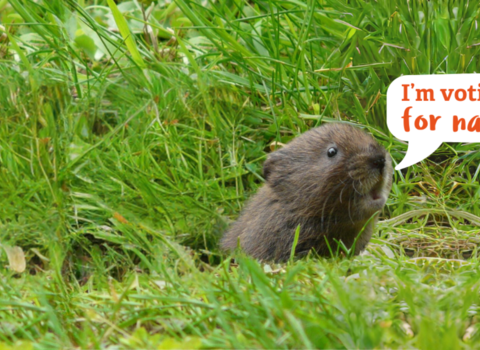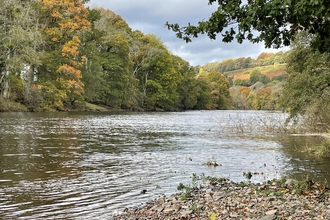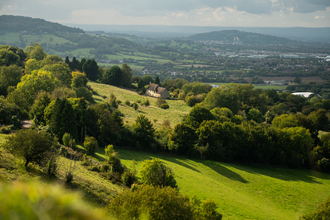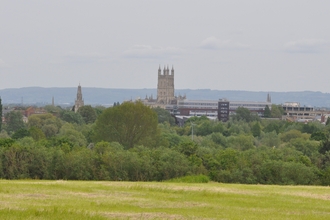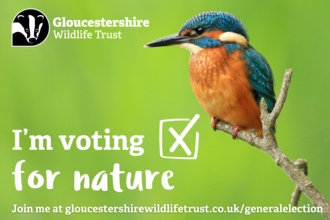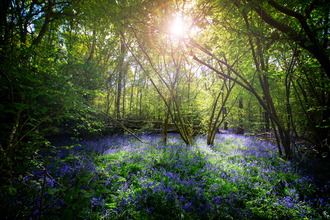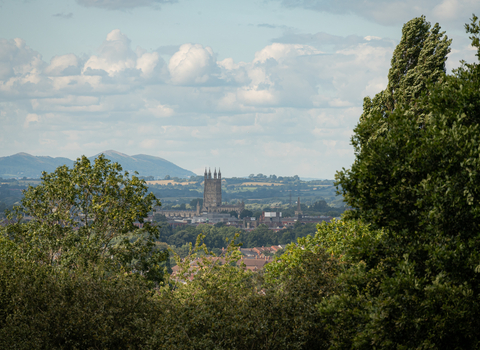With an upcoming general election of 4 July 2024, it's important to have your say by voting - it determines your future.
We believe all young people have a voice and should have their say, especially for wildlife. We are the Youth Advisory Group of GWT and we have three aims; to advise, amplify and connect young people with the GWT Board of Trustees, the work the Trust does, and the counties' natural environment. You can find out more about what we do here.
We all depend on nature but the UK is one of the most nature-depleted countries in the world. Now, it's more important than ever to urge parties and their candidates to take action for nature, before it's too late.
Vote in this general election to give wildlife, and yourself, a voice for the future. If you aren't sure how, check out the information on this page and using our glossary.
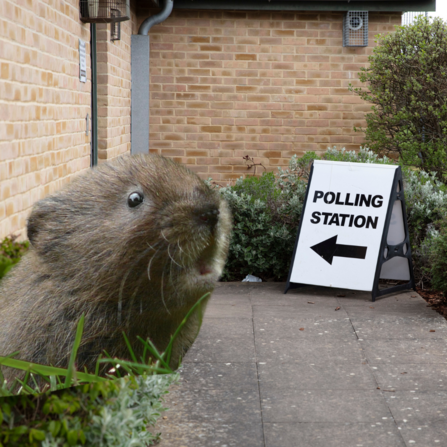
How to vote
- Once you've registered, you can vote either in person at a polling station on the day of the election (4 July), by post, or by applying to have someone else vote for you (voting by proxy).
- You must be 18 or over on the day of the election (4 July) to vote [1].
- You will receive a polling card in the post before the election, but you don't need this to vote as they will ask for your name when you arrive at the polling station.
- What you do need is your photo ID. Without this you will not be able to vote.
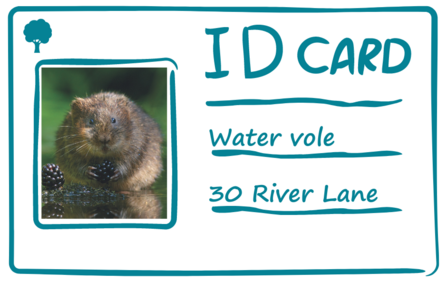
Make sure you have Photo ID
- There are various forms of photo ID that are accepted, you can see the full list here.
- The ones you'll most likely have are your passport, driving license or provisional license.
- If you don't have any valid photo ID you can apply for a Voter Authority Certificate. To get one these you have to register first, and the deadline to apply for Voter Authority Certificate is 5pm on 25 June (six working days before the general election) [3].
What do the party manifestos tell us about their plans for nature?
Click each party to see what The Wildlife Trusts think about their policies.
Conservative party
- Plan for Water; working with the regulator to further hold companies to account, including banning executive bonuses if a company has committed a serious criminal breach.
- Using fines from water companies to invest in river restoration projects, including linking up thriving habitats to multiply the benefits for wildlife and water quality.
- Continue to support programmes that encourage disadvantaged children and young people to access green spaces.
- Deliver commitments on National Trails including the Coast to Coast Path and the King Charles III England Coast Path.
- Continue to work with landowners, charities and others to open up more ‘access to nature’ routes.
- Deliver tree planting and peatland commitments through Nature for Climate funding, and continuing work to unlock private investment.
- Cut red tape that holds back the planting of trees in the planning system. This will identify particularly suitable areas for tree planting where processes and permits will be streamlined.
- Deliver at COP28 to introduce forest risk commodities legislation early in the next Parliament, tackling impact on illegal deforestation internationally.
- Designate 11th National Park alongside investing to improve existing National Parks and protected landscapes.
- Invest £1.1 billion into the Green Industries Growth Accelerator to support British manufacturing capabilities, boost supply chains and ensure energy transition is made in Britain.
Green party
-
End the scandal of sewage pouring into our rivers and seas by taking the water companies back into public ownership.
-
Extend people’s access to green space and waterways close to where they live with a new English Right to Roam Act
- All UK domestic and overseas territorial waters to offer the highest level of protection to marine life.
- Set aside 30% of our land and seas by 2030 in which nature will receive the highest priority and protection.
- Introduce a new Rights of Nature Act, giving rights to nature itself.
- Wind to provide around 70% of the UK’s electricity by 2030.
- Delivery of 80GW of offshore wind, 53 GW of onshore wind, and 100 GW of solar by 2035.
- Stop all new fossil fuel extraction projects in the UK.
- Biodiversity and soil health to be conserved and improved, leading to cleaner rivers.
- Farm payments to be linked to reduced use of pesticides and other agrochemicals.
Labour party
- Put failing water companies under special measures to clean up our water
- Give regulators new powers to block the payment of bonuses to executives who pollute our waterways
- Bring criminal charges against persistent law breakers.
- Impose automatic and severe fines for wrongdoing
- Ensure independent monitoring of every outlet.
- Create nine new National River Walks, one in each region of England
- Establish three new National Forests in England
- Planting millions of trees and creating new woodlands
- Expand nature-rich habitats such as wetlands, peat bogs and forests
- End the badger cull
- Will champion British farming whilst protecting the environment
- Make environment land management schemes work for farmers and nature
- National Wealth Fund supports the most energy intensive sectors to decarbonise
- Supports the introduction of a carbon border adjustment mechanism
- Create a new publicly owned company, Great British Energy
Liberal Democrats
- Transforming water companies into public benefit companies,
- Banning bonuses for water bosses until discharges and leaks end
- Replacing Ofwat with a tough new regulator with new powers to prevent sewage dumps.
- Set meaningful and binding targets to stop the decline of our natural environment and ‘double nature’ by 2050: doubling the size of the Protected Area Network, doubling the area of most important wildlife habitats, doubling the abundance of species and doubling woodland cover by 2050.
- Plant at least 60 million trees a year.
- Strengthen the Office for Environmental Protection and provide more funding to the Environment Agency and Natural England to help protect our environment and enforce environmental laws.
- Committed to cutting greenhouse gas emissions to net zero by 2045 at the latest
- Invest in renewable power so that 90% of the UK’s electricity is generated from renewables by 2030.
- Accelerate the rollout of the new Environmental Land Management schemes, properly funding it with an extra £1 billion a year to support profitable, sustainable and nature-friendly farming.
- Support farmers properly in restoring woodland, peatland and waterways, creating new natural flood protections and managing land to encourage species recovery and carbon storage, while producing food for the table.
References (where we got our information)
[1] UK Gov (2024) General election. Online: https://www.gov.uk/elections-in-the-uk/general-election.
[2] UCAS (2024) REGISTER TO VOTE. Online: https://www.ucas.com/money-and-student-life/money/budgeting/how-save-money-uni/register-vote
[3] The Electoral Commission (2022) Deadlines for applications for Voter Authority Certificates or Anonymous Elector's Documents for a particular election or petition. Online: https://www.electoralcommission.org.uk/running-electoral-registration-england/voter-authority-certificates-and-anonymous-electors-documents/deadlines-applications-voter-authority-certificates-or-anonymous-electors-documents-a-particular

